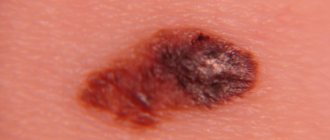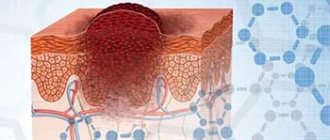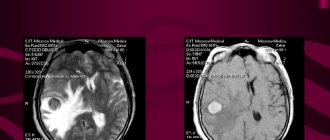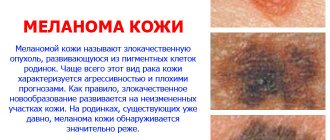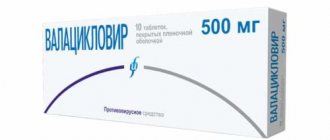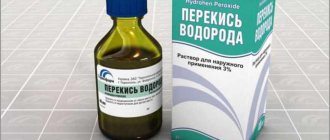Last Updated on 10/20/2016 by Irina N.
Immunotherapy for melanoma is a modern method of treating skin cancer, which is both a dangerous and progressive disease that affects the lymph nodes over time. Melanoma is a growth on the skin that grows in size over time. Pigment spots can lead to melanoma; they form on the skin with prolonged exposure to ultraviolet rays.
Immunotherapy is the strengthening of the immune system through drug therapy. This method of treatment is extremely important to consider if there is a risk of developing tumors, since it is precisely when there is a malfunction in the immune system that cancer cells begin to grow. Immunotherapy for melanoma gives good results; properly selected medications eliminate the formation of metastases. Taking medications for this treatment is carried out according to an individually developed scheme, which is prescribed by a qualified doctor .
Immunotherapy is prescribed if the patient has a reduced activity of the body's defenses. This condition is possible in several cases:
- in the postoperative period;
- if tumor cells begin to penetrate more than 1 cm under the skin;
- if cancer cells recur;
- when diagnosing an aggressive form of melanoma that is growing too quickly.
Immunotherapy can be active or passive. With active therapy, the body’s defense system is stimulated, and with passive therapy, the patient is given analogs of products of the human immune system that fight specific ailments.
Melanoma itself can occur for the following reasons:
- with active proliferation of cancer cells;
- in the presence of any pathology that weakens the body;
- when diagnosing immune deficiency;
- in the presence of a hereditary predisposition to weak immunity.
The goal of treating melanoma with immunotherapy
Immunotherapy for melanoma is one of the effective methods of stopping the pathological process, in which the defense of the immune system is activated by special medications.
The goal of immunotherapy is to activate the immune system, remove existing blocks, and start the process of recognizing and destroying tumor cells. Today, monoclonal antibodies are used for this - substances that perceive certain molecules as antigens and bind to them, thereby activating immune cells. The names of all such drugs end in “-mab” (from the English monoclonal antibody - “monoclonal antibody”).
| Indications and contraindications for immunotherapy | |
| Indications | Contraindications |
| Presence of mutant melanoma cells deep in the layers of the skin | Diseases of the cardiovascular system in the chronic stage |
| Aggressive stage of melanoma growth with infiltrates and signs of ulceration | Autoimmune diseases |
| Preventive measures for recurrence of primary oncological formation on the skin | Pregnancy and lactation |
| Lack of immunological reactivity of the body to malignant neoplasm cells | |
| The rehabilitation period after surgical treatment of skin cancer | |
The use of immunotherapy at different stages of melanoma (2, 3, 4):
- At the first stage of melanoma, the tumor is removed surgically. Usually this is enough to stop the cancer process. Additionally, Imiquimod cream is prescribed, which has an immunological effect.
- Immunotherapy for stage 2 melanoma is usually prescribed after surgery. This type of treatment is gradually replacing conventional chemotherapy.
- In the third and fourth stages, drugs to strengthen the immune system help prolong life and improve the patient’s condition.
Advantages and disadvantages
Immunotherapy is a fairly new method of cancer treatment. Despite this, it has already proven itself, having a number of advantages:
- Extending life in patients with advanced stage cancer and with metastases even in organs separated from the tumor.
- Immunotherapy for melanoma increases the chances of recovery in cases where surgery to remove the malignant tumor is impossible.
- Increasing the survival rate among cancer patients.
Disadvantages ⛔
Disadvantages of immunotherapy for melanoma:
- immunostimulating drugs act indirectly and cannot directly destroy cancer cells;
- interleukin-2 in high doses exhibits high multiple organ toxicity;
- Interferon-alpha preparations must be used long-term and require maintenance courses (three injections per week), since cessation of immunotherapy leads to relapse of the disease;
- the complexity of the biochemical system for regulating the immune response and the lack of objective data on the genetically determined characteristics of the immunity of patients does not make it possible to predict the outcome of treatment (in almost 30% of cases there is no positive clinical effect);
- the dosage is determined empirically, the appointment of the optimal dose requires an immunological examination of each patient;
- prolonged stimulation of the immune system often leads to its subsequent suppression.
Reviews from our patients
- Feedback on lung cancer treatment
Lung Cancer Treatment Review June 15, 2021Sergei Nikolaevich contacted us for treatment of lung cancer. Before that, he went to other medical institutions, but they could not help. In a matter of days, our doctors examined the patient. Based on the results of the interdisciplinary consultation, treatment tactics were prescribed. It consists of combined courses of chemotherapy, targeted and immunotherapy. The first stage of treatment has already been completed. There are no side effects. “My impressions are positive. The situation itself...
read more
- “Medicine 24/7” is the only place where we could help
“Medicine 24/7” is the only place where they could help on April 9, 2021.
Our clinic became the only place where they could help the patient. All the others refused it due to age and concomitant diseases. The reason for hospitalization was the threat of a fracture of the first lumbar vertebra due to a secondary lesion. The patient underwent CT-guided vertebroplasty and the first course of immunotherapy. Further treatment is ahead. “The only clinic where we found help and very good specialists. I express my gratitude to doctors...
read more
- Treatment lasts a year. Patient's review
Treatment lasts a year. Review from a patient November 11, 2019
Before us is a case of a medical error, a struggle for life and its successful outcome. Natalya was admitted to us in critical condition caused by a brain tumor. Thanks to the patient’s persistence, the treatment gave good results. She was not going to despair and give up, and we only gave her the opportunity to return to a full life. Natalya has been in another hospital for three years...
read more
Kinds
Immunotherapy for melanoma involves influencing the immune system in such a way that it can not only recover after the disease, but also prevent many viruses, bacteria and malignant cells during it. The course of “treatment” of protective forces can be carried out in accordance with different methods:
- active technology – drugs prescribed by a doctor activate the body’s lost defenses;
- passive - a person is injected with medications that produce substances that help fight a specific type of cancer, in this case melanoma.
Active immunotherapy for melanoma involves cytotoxic T cells. They destroy foreign cells by contact with them. The passive method of immunotherapy involves:
- monoclonal antibodies - capable of suppressing any potentially dangerous substance (antigen);
- cytokines - control the development of immunity and contribute to its self-regulation;
- lymphocytes - influence the antigen in the extracellular space.
What does it represent?
Immunotherapy is a method of therapy aimed at activating the body's defense mechanisms through the administration of various vaccines and serums. It is used in cases where the body is not able to cope with the attacks of the disease on its own. Such therapy plays an important role in the fight against melanoma, since cancer cells destroy the immune system, and the body sooner or later ceases to resist the growth of cancer cells. There are two types of immunotherapy.
| Types of immunotherapy | |
| View | Operating principle |
| Active | Activation of the body's defenses |
| Passive | Used to fight disease. The essence of therapy lies in the introduction into the body of analogues of substances produced by the body’s immune system |
How is immunotherapy performed for melanoma?
Immunotherapy for melanoma begins to be used no earlier than the 2nd stage of the disease, usually after surgery, when the immune system begins to need support.
Treatment with immunomodulatory drugs is carried out only in a hospital setting:
- The active method is used at the initial stage of the disease to strengthen the body; the result is achieved gradually by strengthening the work of the protective cells of the immune system.
- Passive involves the administration of drugs with antibodies that spread throughout the body and destroy cancer cells.
There is no specific immunotherapy regimen for melanoma. For each patient, the oncologist develops an individual treatment plan. Immunomodulatory drugs are administered intravenously over several weeks at intervals of several days. In the final stages of melanoma development, which cannot be treated surgically, the dose of medication is significantly increased. This achieves the maximum effect of immunotherapy and increases the patient’s life expectancy.
Side effect
Immunotherapy, like other melanoma treatment options, is not without side effects. They are especially evident when high doses of Interferon are prescribed - the drug has a toxic effect on all organs. Not only this drug, but also other immunotherapy drugs have side effects on organs and systems:
- General reactions in the form of headache, weakness, fever, weight loss.
- The reaction from the gastrointestinal tract can manifest itself in the form of nausea, vomiting, abdominal pain and diarrhea.
- The musculoskeletal system reacts to the drug with pain in the bones and muscles.
- From the central nervous system, irritability, depression, insomnia, decreased concentration and tearfulness were noted.
- The skin may react with an itchy rash. There may also be general dry skin and limited hair loss.
When using Interferon at a dose of up to 100 million MN per square meter of the human body, fever, headache, muscle pain and general weakness were most often observed. 72 hours after the last administration of the drug, the body temperature returned to normal and the general condition improved. If the temperature persists for more than three days, there is a possibility of a secondary infection, so you should consult a doctor.
Treatment of melanoma with interferon has its positive and negative sides, but according to statistics, such therapy increases the life expectancy of patients with melanoma.
